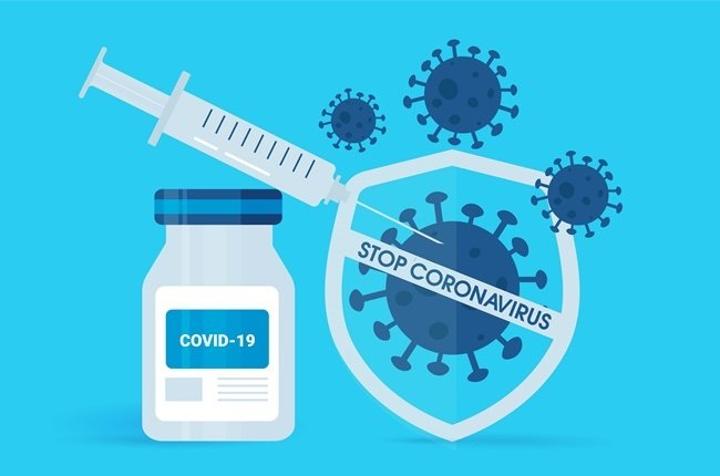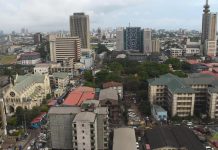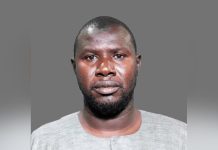Africa-Press – Gambia. Hong Kong was praised for its success in handling its Covid-19 outbreaks in 2020. But, this month, the city with a population of 7 million people saw a surge in cases and recorded one of the highest death rates in the world (5 000 deaths), and numbers are expected to climb. Reporting by AFP noted that the city’s morgues were overflowing as they battled the virus.
Nearly 30 million people in mainland China were ordered into lockdown after more than 3 000 daily new cases were reported. China last year announced that it would relentlessly pursue a Covid-zero policy, but the jump in cases is now testing the resilience of that approach.
The virus first emerged in mainland China in December 2019, and crossed the border into Hong Kong on 24 January 2020. Its current outbreaks are being driven by Omicron, the latest variant of concern dominating cases in several other countries globally, including South Africa. But how did this escalate, and why are they facing a devastating new wave? We asked two experts to break it down.
The governor of China’s north-eastern Jilin province, the current epicentre of the country’s Omicron outbreak, vowed to “achieve community zero-Covid in a week”, state media reported on Monday. The country has increased its testing measures as they aim to find and isolate every case, and put a stop to virus transmission.
While completely eliminating the virus would be ideal, this approach is unachievable. Several scientists have warned that the virus is here to stay and will eventually become endemic, like the flu. In other words, infections will occur in low numbers and won’t require widespread action, as people will become immune to the disease through natural infection or/and vaccination.
“I don’t think zero-Covid is a realistic strategy,” infectious diseases expert, Dr Richard Lessells, told Health24. “What we are seeing is that it has become increasingly difficult over time to contain this virus, and this is particularly the case with the highly transmissible Omicron variant.”
Before its fifth wave, Hong Kong had recorded a low 212 Covid-related deaths. Since the outbreak this year, it has been recording more than that amount daily, according to The Guardian.
New Zealand, which has also adopted a zero-Covid approach, started seeing high case numbers last month. But reporting by the NZ Herald highlighted that, despite more than 21 000 new community cases reported a week ago, two deaths were reported – the total number publicly-reported Covid-related deaths to date is 117 – a much different scenario to Hong Kong.
So what’s contributing to the Chinese territory’s poor outcome? It boils down to a few factors, including low vaccination coverage among the elderly, low levels of natural immunity, and vaccine efficacy. Vaccination coverage
“Unfortunately … if there are significant gaps in vaccine coverage (of the primary series and the booster dose) in the groups at high risk of severe disease, as in Hong Kong, then you will also see high rates of hospitalisations and deaths,” said Lessells.
Similarly, Dr Michelle Groome, head of the division of public health surveillance and response at the NICD, told Health24 that part of the city’s zero-Covid strategy was to increase their vaccine coverage, but that this, unfortunately, didn’t pan out the way they expected.
Hong Kong has one of the lowest elderly vaccination rates among developed countries, which ultimately contributed to this deadly wave. Only around 30% of its adults over 80 have been fully vaccinated, despite enough doses being available, notes Reuters. By contrast, more than 90% of adults over 60 years in New Zealand have received both shots.
Groome added that low levels of immunity from exposure to the virus are also what may be contributing to Hong Kong’s situation. For countries like South Africa, which didn’t adopt a zero Covid approach, they can rely on high levels of underlying protection from previous infection. But Groome said that it came at a high cost, with thousands of lives lost, especially in the first three waves.
“But I think now we’re sitting in a position where a lot of our population has underlying immunity, and for countries that have managed to keep Covid at very low levels, I think they don’t have that benefit of having protection from natural infection.”
Groome added: “In that case, there is always this open door that if they don’t maintain those levels of restrictions and response, that it could get into the country and spread where there’s very low protection from natural infection,” she said. Lessells added:
He said this was a reminder of why scientists warned initially to avoid labelling Omicron as “mild”, as its impact might be different in different parts of the world, depending on the levels of immunity in the high-risk groups, such as the elderly.
John Burn-Murdoch, a data reporter at the Financial Times, this week tweeted that exacerbating the situation was the fact that those in the older age group that were vaccinated had received China’s non-mRNA Sinovac shot. The vaccine has been shown to offer some protection against severe disease, but is less effective than the mRNA shots (by Pfizer and Moderna) at blocking infection. Hong Kong’s care homes, for example, experienced more than 1 000 deaths in just a few days, pointed out Burn-Murdoch.
Groome said that it will be interesting to see how things pan out in countries and cities like Hong Kong that have adopted a zero-Covid policy. “And it’s very difficult to compare [their situation] with South Africa at this time, where we’ve had very big differences in how we’ve been able to respond to the pandemic,” she said.
Lessells concluded with a sobering reminder to people in SA: “The important thing for us to learn here in SA is that our absolute priority still needs to be increasing uptake of vaccination in the groups at high risk of severe disease, particularly the 50+-year-olds.”
He said that greater efforts are necessary to get the vaccines to over three million people in this age group who haven’t received any dose yet. Following this, there needs to be a big drive to increase the uptake of booster doses for those who have already been vaccinated with the Pfizer or Johnson & Johnson vaccines.
“We do need more of a sense of urgency about this, as we will see further waves of infection,” said Lessells.
*For more Covid-19 research, science and news, click here. You can also sign up for our Daily Dose newsletter here.
For More News And Analysis About Gambia Follow Africa-Press






